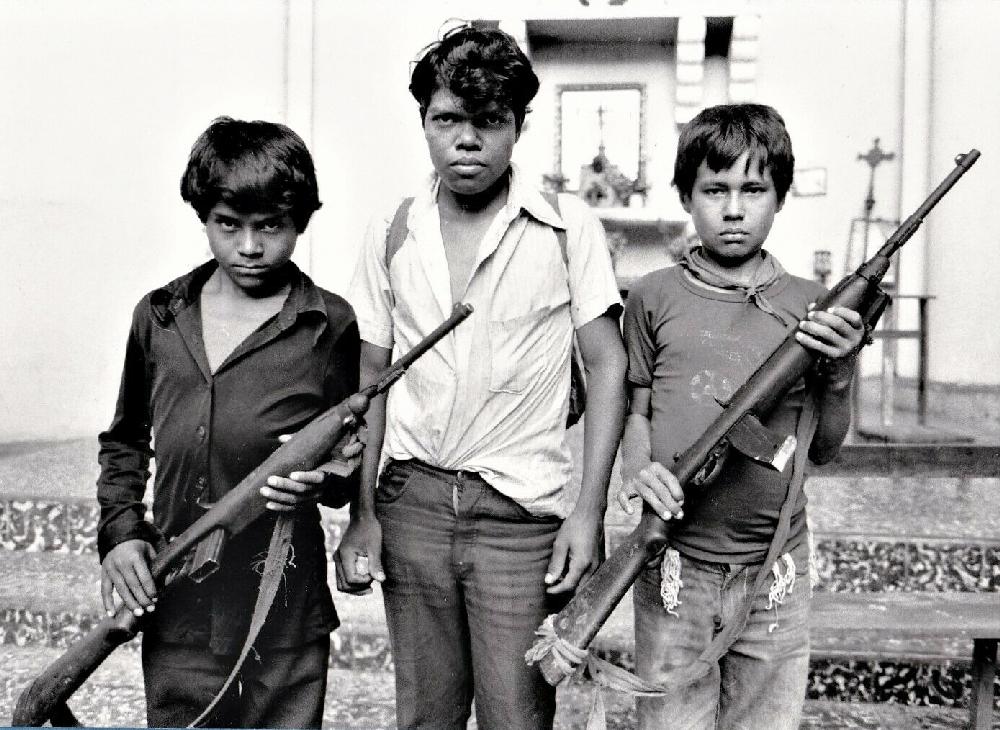
Salvadoran Civil War: Presidential Election (1984)

Figure 1.--Child soldiers played an important role in the Salvadoran Civil War. The press caption read, "El Salvador -- Two Sides of he War: Guerilla boys with their weapons inside the church in Jucuaran, Usulutan province. Guerillas may be as young as 12 years old, although at that age they are generally given guard duties to perform (one reason why they are more visible to the visitor to the area than older fighters.) These hold guns of a positively ancient vintage." Photographer: Rex Henferson
|
|
Jose Napoleon Duarte was again elected president (1984). He moved to reform the judiciary. President Duarte failed to make major accomplishments, although the Civil War began to wind down by the end of his administration. President Duarte filed to stabilize the economy. He also failed to turn his PDC as an alternative to the extremes of the reactionary right and revolutionary left. Many were disappointed wih President Duarte, but the FMLN realized that they wre losing. Thus they began planning one final big offensive. FMLN was not yet ready to make peace, but it was clear that by the time that Duarte left office that they were losing the struggle and that El Salvador was unlikely to be another Nicaragua. Any criticism of Duarte has to be tempored with the enormous problems he faced as president. Duarte had to struggle to control the military which was not accustomed to accepting civilian direction. He faced conservative opposition to his reforms, especially land reform. He also had to struggle to maintain critical economic and military support from the United States where he faced a hostile press and Democratic criics in Congress. He did begin efforts to negotiate a settlement with the FMLN-FDR. He also faced major personal challenges. The FMLN kidnapped his daughter (1985). He was diagnosed with terminal liver cancer (1988). The cancer did not help him in his struggle to gain control of the miitary. Duarte at the end of his presidency suggested tht his greatest achievemnent was transfer power peacefully to a civilan successor--Alfredo Cristiani Burkhard. This would be the first such transition in Salvadoran history.
Sources
CIH

Navigate the Childrn in History Website:
[Return to the Main Salvadoran Civil War page]
[Return to the Main Salvadoran Cold War page]
[Return to the Main Salvadoran page]
[Return to the Main Latin American page]
[Return to the Main Central American history page]
[Return to the Main Latin American Cold War page]
[About Us]
[Introduction]
[Biographies]
[Chronology]
[Climatology]
[Clothing]
[Disease and Health]
[Economics]
[Freedom]
[Geography]
[History]
[Human Nature]
[Law]
[Nationalism]
[Presidents]
[Religion]
[Royalty]
[Science]
[Social Class]
[Bibliographies]
[Contributions]
[FAQs]
[Glossaries]
[Images]
[Links]
[Registration]
[Tools]
[Children in History Home]
Created: 10:29 AM 6/18/2019
Last updated: 10:29 AM 6/18/2019



